2020 Genesis G90 Review - Wheel Inspiration
- Those wheels. THOSE WHEELS.
- 3.3T engine is smooth and relaxed
- Standard luxe and safety tech levels are high
- Styling is finally memorable now
- Tuned for comfortable cruising not eager driving
- Lacks some of the more advanced gadgets rivals offer
- Playing catch-up on prestige
The auto industry loves a trend, so here's hoping the 2020 Genesis G90 proves inspirational for 2021 when it comes to wheel style. For such an important part of how a vehicle looks and performs, it feels a lot like rim design has fallen into a rut over the past decade. Then along came luxury contender Genesis, and upset everything.
The right wheels can absolutely elevate a car – and the wrong wheels can damn it. It's not just about going for the very biggest you can afford, as many tuners have discovered: yes, your rims need to fill the arches nicely, but too large and they just look silly.
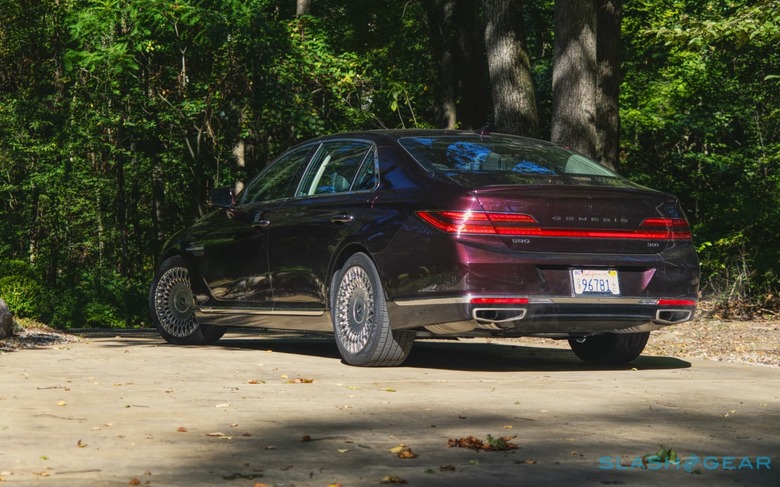
Pattern makes a huge difference, too, and there things have got a little predictable. As the technology to cast alloys with thinner and more complex spoke patterns got within mainstream reach, and with drivers keen to show off their flashy brake calipers, we've fallen into a style groove. Sure, they can look good, but wouldn't it be nice to have something actually striking?
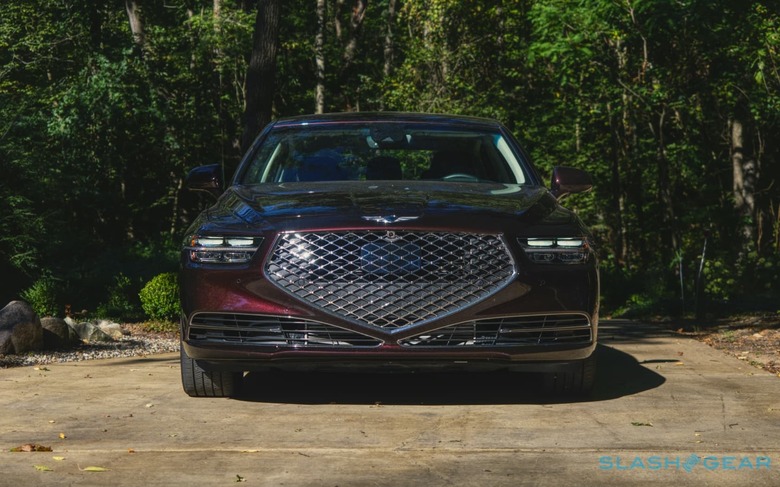
Enter, then, the Genesis G90. Before its revamp in 2018, the luxury sedan from Hyundai's upmarket upstart had carved out a nice of sorts after its 2015 launch as an affordable – if somewhat forgettable – alternative to more badge-led models from Mercedes, BMW, and Lexus. That meant value for money, yes, but I write about cars for a living and I still can't really remember what the OG G90 looked like.
Fast-forward to 2019, though, and the facelifted G90 landed in the US with a far bigger splash. Genesis was upfront about where it had spent its money: an aesthetic reboot which vanquished the unmemorable style of the old version and replaced it with something polarizing.
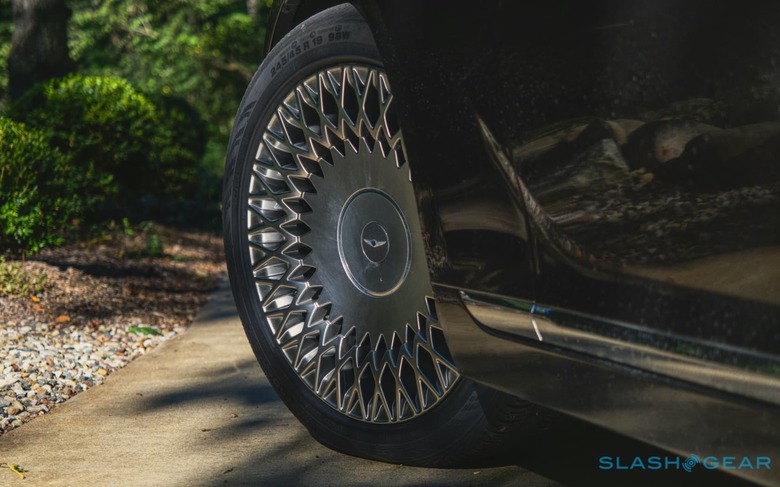
The big grille presaged the sizable snout of the G80 and the new GV80 SUV, while the segmented LED headlamp clusters gave Genesis a unique light signature it could riff off. The jaw-dropper, though, was the automaker's choice of wheels.
19-inches of pseudo-retro snowflake, with a hint of shuriken and a dash of 50s and 60s glamour. They shouldn't work, and yet they do. Genesis offers more mainstream alternatives on the G90, but it instantly leaves the car looking a lot more pedestrian.
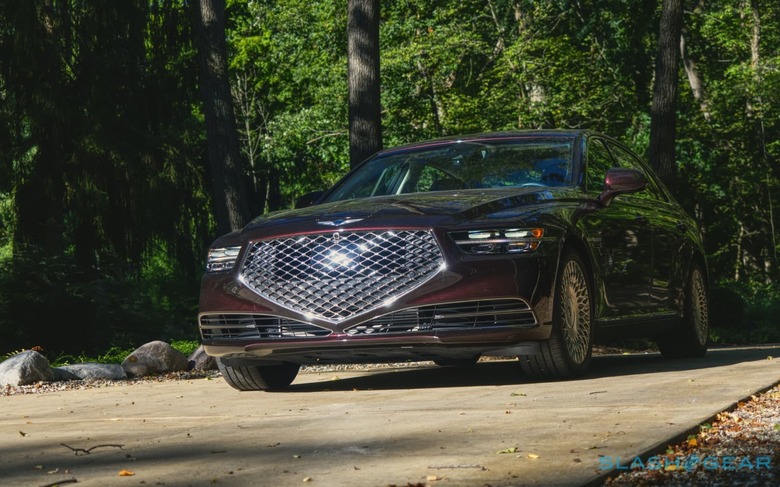
They set the path for Genesis to double-down on wheel-based entertainment. The new G80 strays a little further back to the crowd with its optional 19-inchers as complex as fractals, but they're still more eye-catching than what you find on most midsize luxury sedans. As for the upcoming GV70 crossover, that'll have 21-inch textured finish wheels as an option on its Sport trim, five-spokes that look like they've had a run in with Spider-Man.
The rest of the 2020 G90 performs much as the big Genesis always has. My review car was the 3.3T RWD, pairing a 3.3-liter twin-turbo V6 gas engine with 365 horsepower with an 8-speed automatic transmission, and driving the rear wheels. Premium trim brings adaptive control suspension with electronic dampers, though even in sport mode the G90 prefers to waft rather than dart. All-wheel drive is an option, as is a 420 horsepower V8, though the latter is probably more than most drivers need.
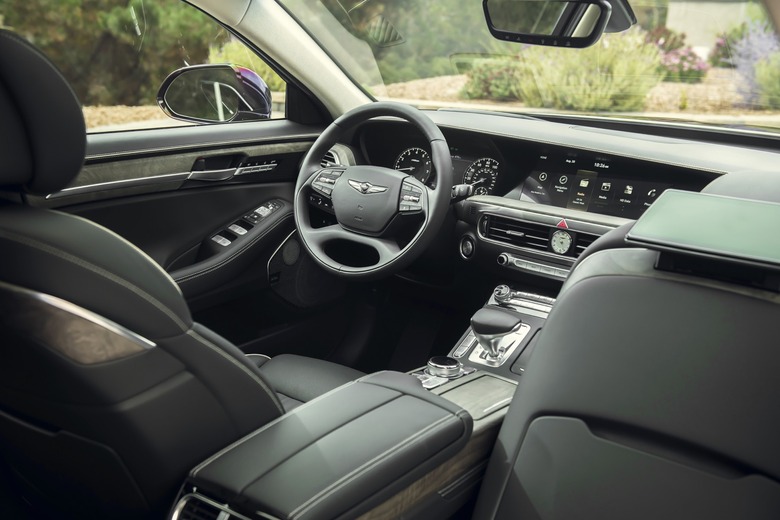
It's comfortable and plush, and makes for an excellent long-distance cruiser. No, you don't get the unexpected sporting twist of the G70, or the ability to straddle luxe and enthusiastic driving of the new G80, but I strongly doubt G90 owners will mind how Genesis has dialed things in.
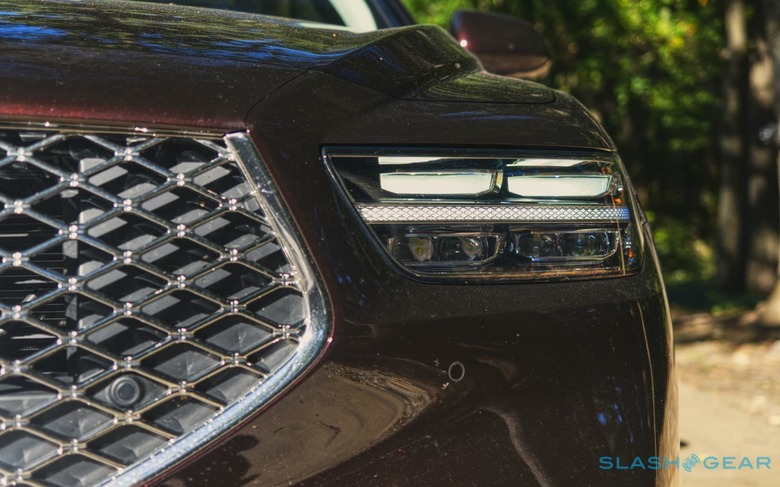
They'll probably be too busy enjoying the high level of standard equipment you get inside. $72,200 (plus $995 destination) gets you leather and real wood, heated and ventilated front seats with 22-way power adjustment for the driver, and heated rear seats, tri-zone climate control, smart cruise control, a head display and 12.3-inch infotainment screen with Apple CarPlay and Android Auto support, and a Lexicon 17-speaker audio system. There's also wireless charging, a sunroof, power-closing doors, LED ambient lighting, and power sunshades in the back.
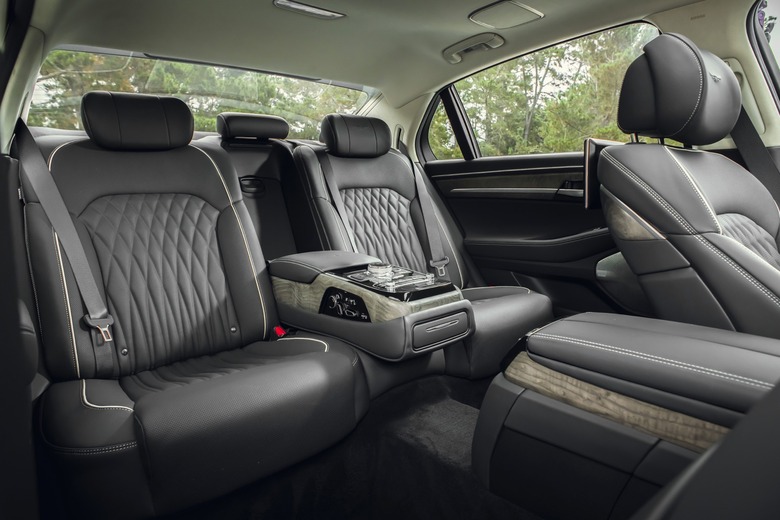
On the safety and assistance tech front, Genesis throws just about everything you'd expect to see. Forward and rear cross-traffic collision avoidance assistance; parking collision avoidance; blind spot monitors and collision avoidance assistance; highway driving assistance with lane-keeping, a 360-degree camera, and parking sensors front and rear. The only thing conspicuous by its absence is auto-lane-change for Genesis' otherwise excellent adaptive cruise.
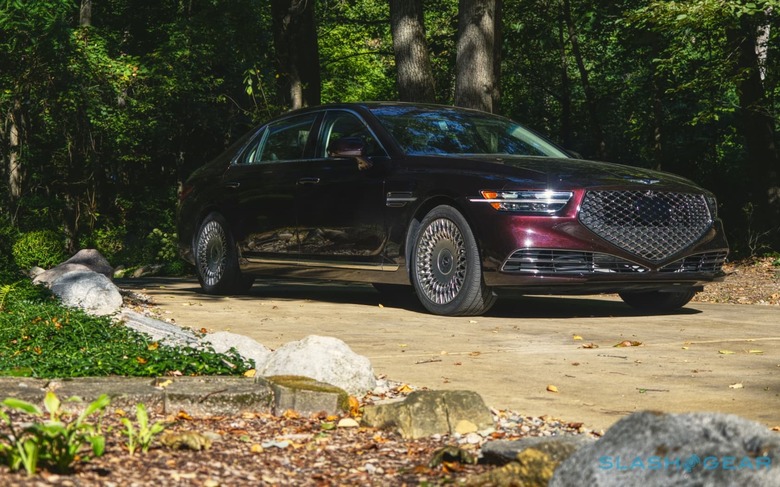
There's no denying that the big luxury sedan segment is a tough nut to crack. Drivers with deep pockets and an appetite for prestige still tend to look to the large Mercedes and BMW; Genesis, quite frankly, will have an easier time of it with its two new SUVs, both of which are shaping up to give the Germans some sleepless nights. That's not to say the G90 is a bad car, in fact nothing could be further from the truth, just that in a category where brand image is usually as important as performance and spec, its badge simply doesn't have the right amount of heritage.
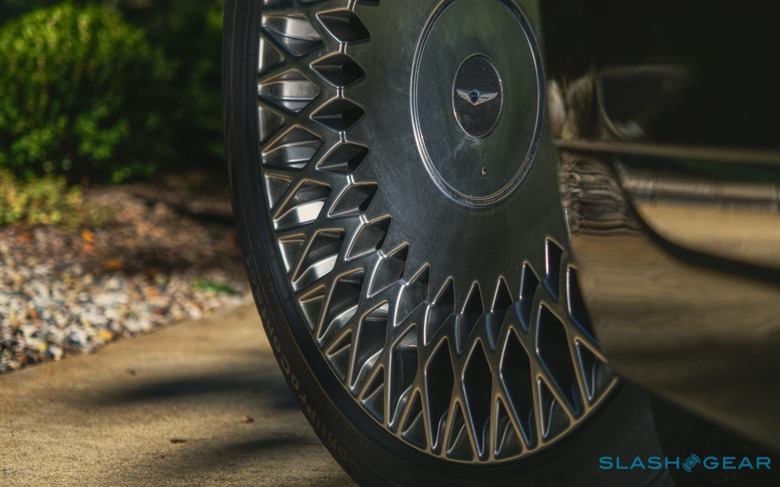
As blueprints for the Genesis reinvention, though, it's a winner. The G80, GV80, and G70 all owe the G90 plenty for its avant-garde willingness to step outside of the norm. Here's hoping that that rim risk-taking inspires the rest of the industry, then, because it's really about time we had a wheel style shakeup.
